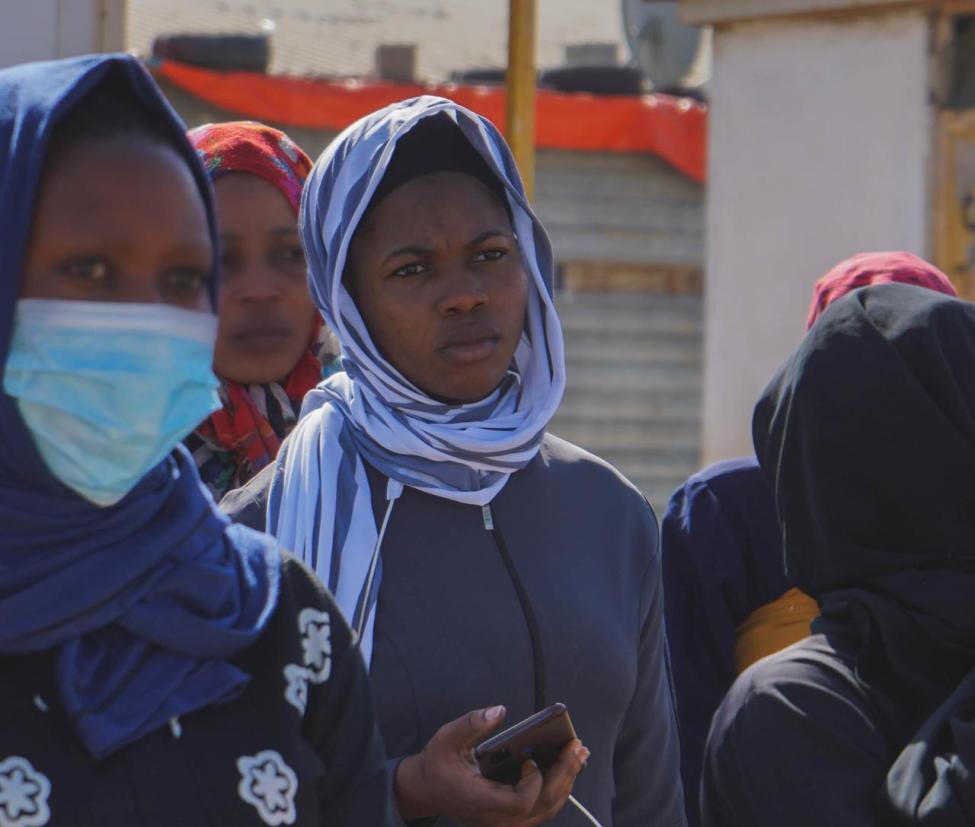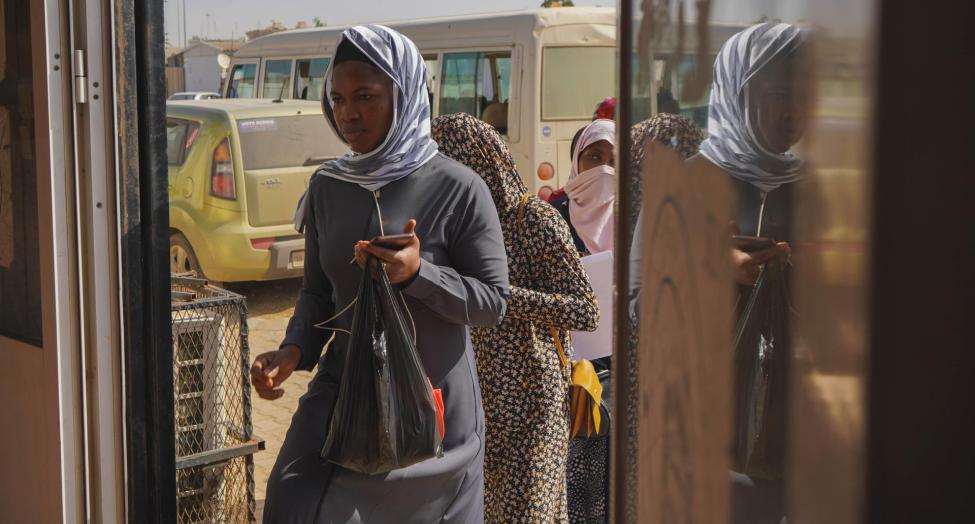-
Who We Are
WHO WE AREThe International Organization for Migration (IOM) is part of the United Nations System as the leading inter-governmental organization promoting since 1951 humane and orderly migration for the benefit of all, with 175 member states and a presence in over 100 countries. IOM has had a presence in Libya since 2006.
About
About
IOM Global
IOM Global
-
Our Work
Our WorkAs the leading inter-governmental organization promoting humane and orderly migration, IOM plays a key role to support the achievement of the 2030 Agenda through different areas of intervention that connect both humanitarian assistance and sustainable development. Across Libya, IOM provides a comprehensive response to the humanitarian needs of migrants, internally displaced persons, returnees and host communities.
Cross-cutting (Global)
Cross-cutting (Global)
- Data and Resources
- Take Action
- 2030 Agenda
The COVID-19 pandemic continues to effect migrants in Libya who have lost their livelihoods due to movement restrictions and a lack of jobs.
Twenty-five-year-old Nigerian migrant Rasheedat Abdullah, moved to Libya to support her family, but by the end of 2020 found herself stuck in Benghazi with no income and no way to leave. Through IOM’s Voluntary Humanitarian Support programme, Rasheedat and her older sister were able to return to Nigeria to make a fresh start.
After finishing high school, Rasheedat, who is from a small town in Ogun State, Nigeria worked as a cashier in a local supermarket to support her family.
She watched as the economic situation in Nigeria worsened and her family made further sacrifices in order to survive. Following in the footsteps of her older sister, Rasheedat decided to migrate to Libya to look for better work opportunities.
She travelled for more than 11 days through the desert, passing through Chad and Niger before reaching the southern city of Sabha. After ten days, she left southern Libya and headed towards the east to find her sister in Benghazi.
"I came to Libya to help my family find a way to live,” Rasheedat said. “Even though I knew it would cost me part of my life, but family always comes first.”
Rasheedat found work in Benghazi as a cleaner. She worked every day, sometimes feeling pride as she sent money home to her family and other times despair at the long hours and little pay.
“Somedays, being a house cleaner is a beautiful thing,” she said. “When I worked with lovely families, who felt comfortable with me and I with them. But after working with people who didn't treat me well, some nights I would cry myself to sleep.”
When the COVID-19 pandemic hit Libya, Rasheedat lost her source of income as jobs became scarce across the country. By the end of 2020 she was unable to send money home or even support herself.
"It was in September last year, that I started thinking about returning to Nigeria,” Rasheedat said. “But it was impossible to travel back. I had no travel documents and the way back through the desert was dangerous. I was stuck.”
After hearing about IOM’s VHR programme, Rasheedat and her sister registered immediately, but due to the pandemic flights were cancelled from leaving Libya and after that IOM’s VHR programme was suspended for eight months. It would take the sisters a year before they could return to Nigeria.
“I wanted to return every day for a year,” Rasheedat said. “After being stuck in Libya, I found hope and here I am now at Benina International Airport, heading to Lagos with my sister. Finally, the family will be reunited!"


